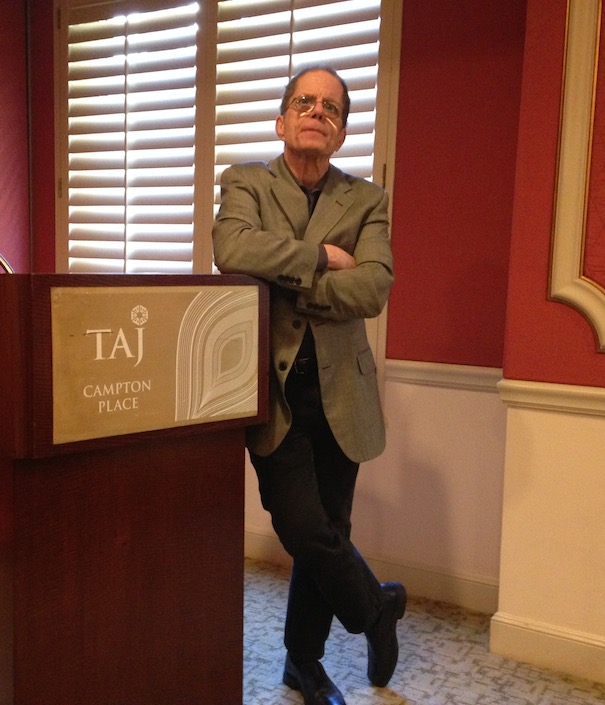Memories of the Good Old Days
By Phyllis Goodman
It was Dennis McNally’s doctoral thesis—later published—on Jack Kerouac that brought him to Jerry Garcia and the Grateful Dead.
Dennis was the speaker at the February 23 PR Roundtable meeting, where he regaled attendees with war stories about life with the Dead, gleaned from 15 years and 1,100 concerts working as the band’s publicist.
How did he get his start? Jerry Garcia was enamored with Jack Kerouac, a symbol of freedom, the open road and all that the Beat Generation stood for. Dennis knew this, so he sent Garcia a copy of his book. In 1980, Dennis found himself in a room with Garcia, where Dennis managed to ask Jerry if he had received his book. Garcia said yes, it was great, and thanked him for it.
“At that point, I did the smartest thing I’ve ever done in my life,” Dennis recalls. “I kept my mouth shut and left the room.” A few months later, Jerry asked Dennis to write a book about the Grateful Dead. And so began Jerry’s affiliation with the music business. It’s amazing what a doctorate in American literature can do for you.
“Back then, no one at the Grateful Dead’s office returned the numerous calls they received from the media,” Dennis notes. “The office receptionist was on the receiving end of a lot of annoyed calls from reporters who were eager for interviews.” It was she who brought this to Jerry Garcia’s attention. His immediate action was to assign all media relations to Dennis McNally. And so a career was born.
Though some in the band didn’t see the need for a publicist (We’ve sold all the tickets; why do we need you?), Dennis became an invaluable member of the team. There were some 80 people employed by the Grateful Dead, from stage crew to merchandising reps to the band itself.
When asked about how the music industry has changed over the years, Dennis pointed to three major pillars in the business:
- Touring. The band had its own promoter, and the city where the band played had its promoters. Now, a band can pre-sell an entire tour to one promoter, so there’s much less need for local media outreach.
- Records. A huge component of promoting the band was selling its records, working with the band and with the record companies. Now, digital recordings are the mainstay of the music business.
- Radio. It was crucial to get radio stations to play the band’s songs. Nowadays, the only place you can get new music played is on non-commercial radio.
In many ways, the Grateful Dead was a precursor to social media practices. For example, they allowed fans to record their concerts. Not wanting to police their concerts, they considered it more difficult to prevent taping than to go along with it. This practice enabled more people to hear the music than could possibly have fit into a concert hall.
And, the Dead set up its own Deadhead telephone line, where fans could call to get the dates for upcoming concerts. “At one time,” said Dennis, “we managed to shut down the phone system in San Rafael because our 15 lines were so overloaded with callers that the system couldn’t handle it in addition to its local residential service.”
Dennis pointed out that ultimately, all publicists have two clients: The person who signs the checks and the news media. Successful publicists do a great job with both.

